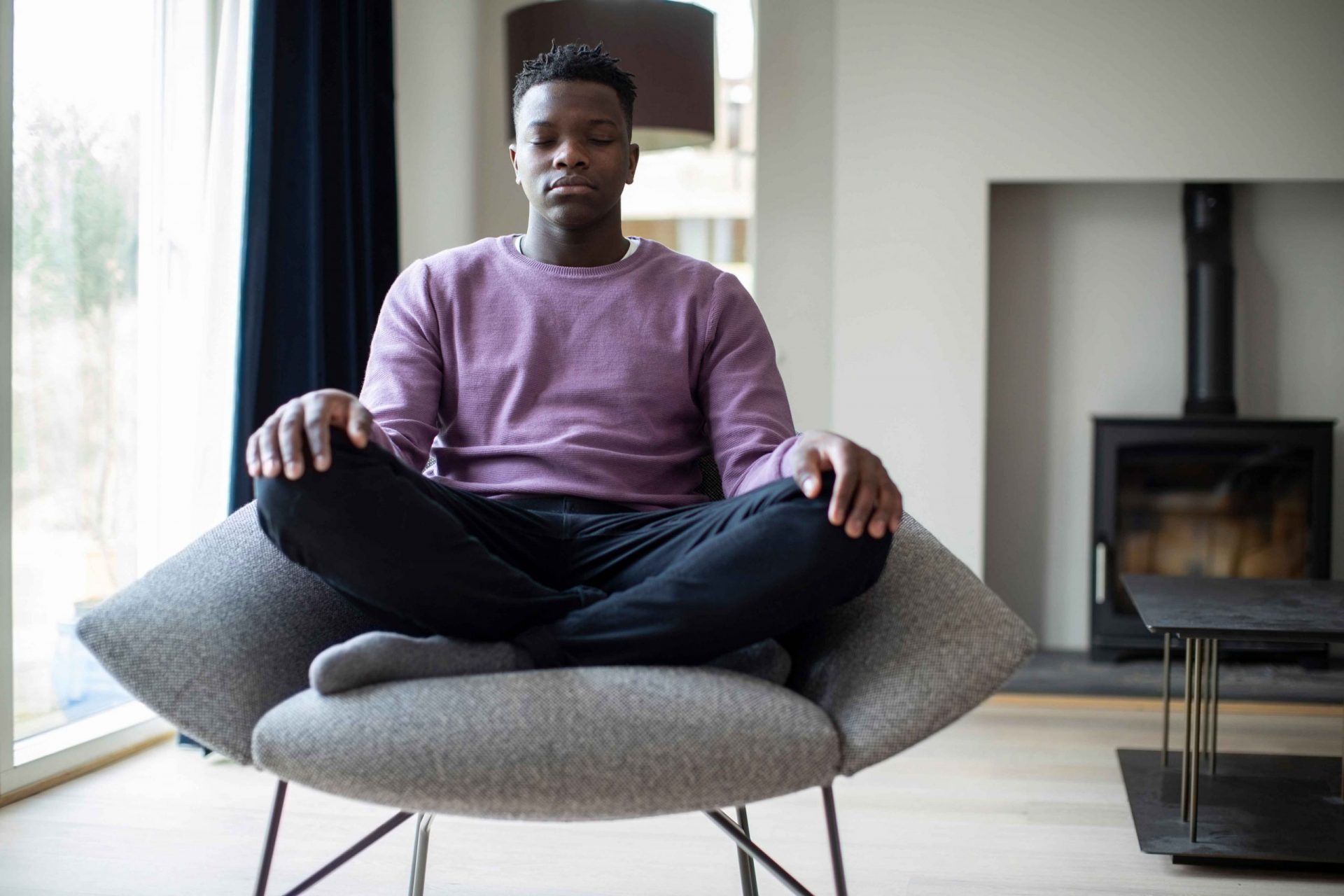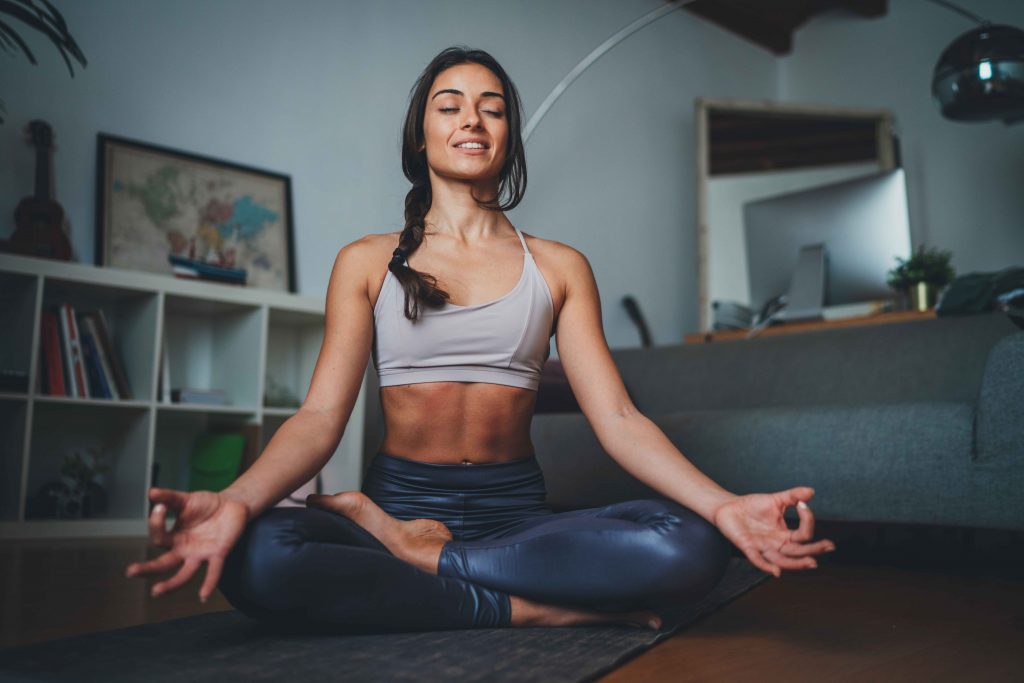
Life is hectic. There’s no denying that. The stress of so many commitments and responsibilities can leave you feeling frantic and out of control. This often leads to constant mind-wandering about things that happened in the past, what might happen in the future, or things that’ll never happen at all. These countless hours spent lost in thought can have a serious impact on your mental health.
A solid 10 minutes of meditation to push pause on the overwhelming emotions and instead focus on the present moment can help you reassess your thoughts and find clarity. You rely on your mind for so many things, like interacting with others, thinking, problem-solving, and so much more. You owe it to yourself to set aside a few minutes every day to focus on the health of your mind and wellbeing. Then, you can continue with your to-do list with a greater sense of intention, focus, and gratitude.
Through meditation, you may experience reduced stress, increased focus, and improved decision-making skills and sleep patterns. While the benefits are clear, many people wonder when it’s the best time to meditate. Let’s explore that a little further.
When is the Best Time to Meditate?
The truth is – anytime is a good time. Carve out a few minutes each day to restore calm and inner peace. It’s best to choose a time when you’re not overbooked or overwhelmed.
You can meditate in the mornings, just before bed, or even sporadically throughout the day. Just try to commit yourself to those 5-10 minutes of practice every day and make sure nothing gets in the way of your “me time”.
How to Find Time to Meditate
Many people who are new to meditating find it hard to find the time to practice. Luckily, meditation follows a “short and often” approach, meaning committing to a quick, daily meditation rather than a long, isolated session will be most effective.
It’s important to figure out a time where meditating can become a part of your daily routine. When consistently incorporating it into your routine at the same time every day, you’re more likely to stick to it and form a habit. Aim to have a “same time, same place” mentality. Any free 5-10 minutes when you know you’ll have minimal distractions will work. Once you find the time to meditate and form a recurring habit, the benefits will start rolling in.
You could also relate it to any other activity that you’re already doing, which will help to anchor the habit. For example, you could dedicate 5 minutes to meditation after brushing your teeth in the morning, after jumping out of the shower, or after dinner every night. Utilizing a steady act that already exists in your routine will make it harder to avoid your daily meditations.
You also want to give yourself a little wiggle room. No two days look the same. Sometimes you may have to move your meditation to a new place or time – and that’s okay. Learning to be flexible is all a part of mindfulness practice. If you miss a session, don’t beat yourself up about it. Get back on track tomorrow and try not to sweat the small stuff.
Morning Meditation
Practicing mindfulness is beneficial at any hour of the day, though many people choose to meditate first thing in the morning. When you commit yourself to morning meditation, you can ensure it happens consistently. Chances are your day will only get more hectic as it progresses. There aren’t as many distractions in the morning, making it difficult to push further down your daily to-do list.
Plus, a guided meditation first thing in the morning can be a motivating force for the rest of the day. You’re making your mental health a top priority before anything else – even coffee! This can help you enter into the day fully aware, awake, calm, confident, and ready to take on whatever curveballs may come your way. Not only will morning meditation put you on track to have a successful day, but it also provides a steady routine. This stability can feel grounding as it’s something you can control regardless of the uncertainty to follow.
Of course, morning meditation isn’t for everyone. Something that works for one person may not work for someone else. As mentioned earlier, there is no best time of day to meditate. Whenever you have a free moment to pencil it into your schedule, do it!
Daytime Mediation
Some people need a large cup of coffee before starting their day or feel too tired to stay mindful and completely present at night. Well, meditation can happen anywhere, at any time! For daytime meditators, the best time to meditate is when you have some free time without distraction.
Do you have some time after your lunch break or a late coffee break in the afternoon? Instead of heading to the coffee machine for yet another cup, take that time to find a quiet spot where you can focus on mindfulness for a few minutes. Taking the time every day to prioritize your mental health instead of the extra caffeine can have immense benefits to your life.
Remember – meditation practice is nothing more than taking the time to focus on your breathing and grounding yourself in the present moment. If you don’t have access to a quiet room during the day, try to take a few moments for deep breathing when you can. Take a step back from whatever you’re working on and take 5 deep inhales/exhales. Feel your feet on the ground and center your mind. Focusing on your breath during a stressful situation is no different than a more structured meditation session. Those learned skills are there for a reason and should be used throughout the day.
Nighttime Meditation
Meditating at night will not only help bring a sense of calm at the end of your day, but it can also help with sleep. We’re all guilty of scrolling through social media right before bed. Switching that habit out for sleep meditations can help to settle the mind and rest the body, both of which are inner conditions needed for restfulness.
Meditation trains you to be less in your head and more present. Well, the mind often gets caught up in things in the past or future, which is even more prevalent at bedtime. Meditating before sleep provides a guided experience that makes it easier to wind down and drift off into a good night’s sleep.
Sleep is as important as food and water. It’s critical to your wellbeing, yet it’s far too often discounted and ignored. Through sleep-focused meditation, you will find new approaches and techniques to ease into restfulness. If you’re feeling sleep-deprived because you can’t fall asleep or stay asleep, nighttime may be your best time of day to meditate.
Guided meditations before sleep are a very specific type of practice. It works as a natural sleep aid, helping you to let go of everything that happened that day so you can fully rest your mind and body. It’s scientifically proven that meditation helps to lower the heart rate by encouraging slower breathing. This is ideal for a quality night’s sleep. A meditation app will offer sleep-based meditation practice.
How to Get Started With Meditation Practice
If you want to begin your meditation journey, it’s important to build a solid foundation. As with any new skill, meditation takes time, effort, and practice. Here are some tips to help you meditate:
- Practice mediation in a peaceful, quiet space. Turn off your phone, computer, TV, and any other electronic device that could be a distraction.
- When meditating, proper posture is critical. Make it a habit to check in with your posture throughout your meditation.
- Learning the practice of meditation will take time. Remember to be patient with yourself. Take it slow and eventually you will learn how to manage the thoughts and emotions circulating through your mind.
- Carve out a specific time every day to meditate. When meditation is scheduled at the same time every day, it will be easier to commit to the practice and form a habit.
- Try a meditation app to help perfect your practice.
Meditation Resources
There are plenty of resources available – whether you’re new to meditation or have been practicing for a while. If you don’t know how to get started or want to develop a deeper connection with your practice, you might want to consider a meditation app or YouTube videos.
Some popular apps include Headspace, Calm, and The Mindfulness App. Some popular meditation YouTubers are The Honest Guys and The Summer Meadow. All are available online, helping to make meditating easily accessible for those interested.
Conclusion
Adding a guided meditation to your daily routine can unlock even more benefits than you would have expected. When you meditate – morning, afternoon, or night – you can ease feelings of worry and stress and enhance concentration and decision-making skills.
The fact of the matter is – when following a meditation practice for consecutive days you can fundamentally shift the way you approach your thoughts and feelings. There’s no denying that negative emotions can be overwhelming and take hold of our minds. Meditation can help to dial down the intensity and generate a greater sense of clarity, calm, and perspective.
Overall, the benefits are widespread – from reduced stress, anxiety, and even high blood pressure to improved sleep quality, focus, and immunity. There are so many ways meditation practice can help your body and mind. It’s worth a try.



